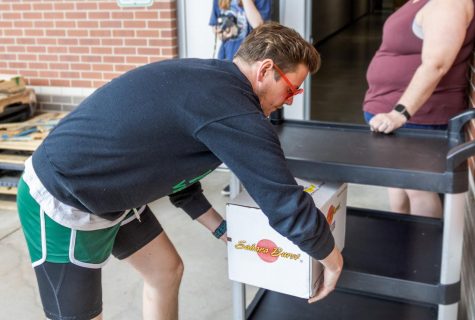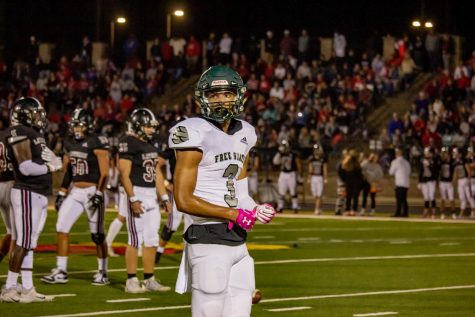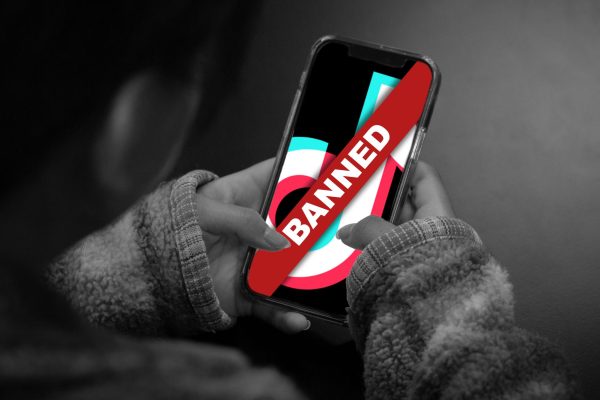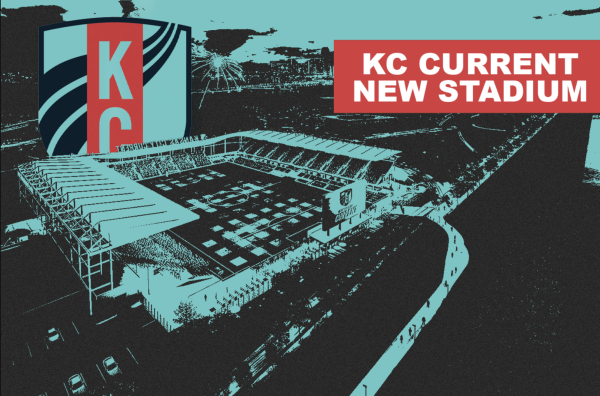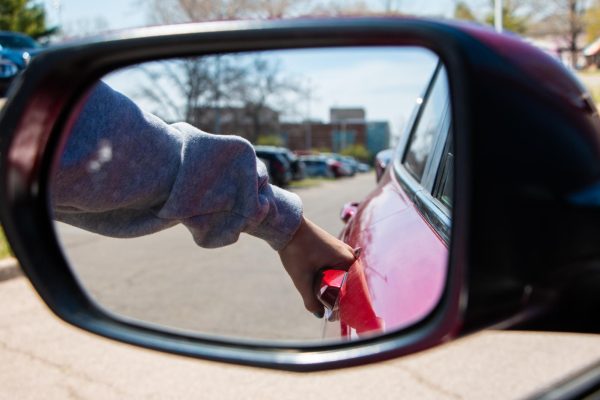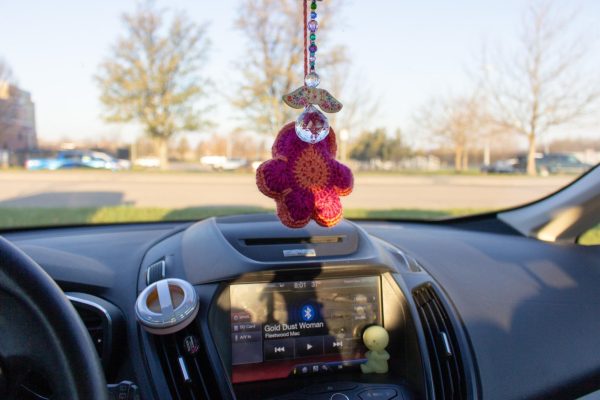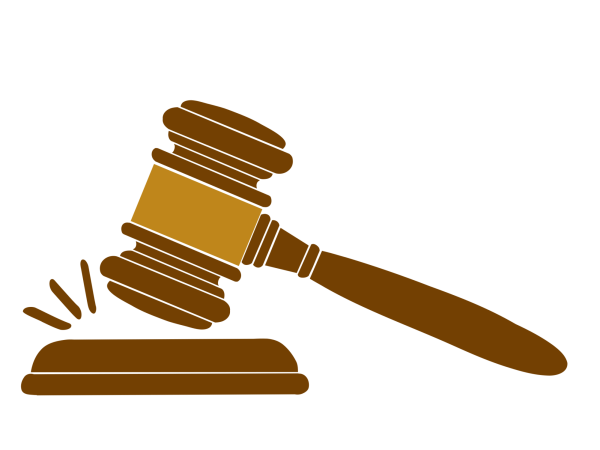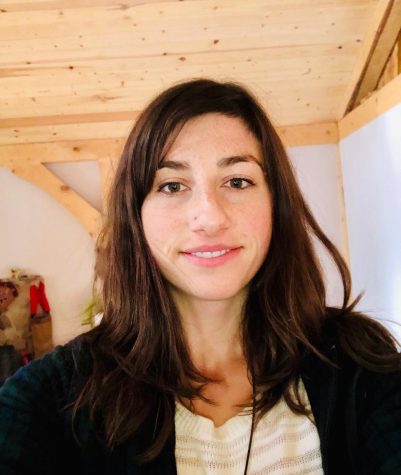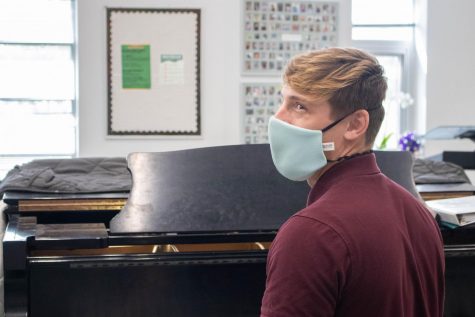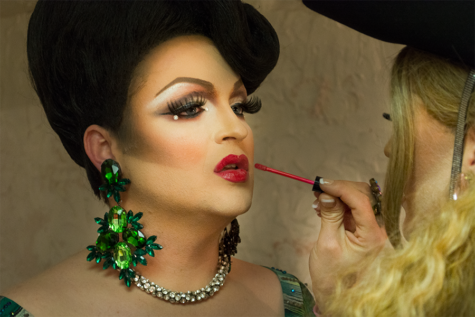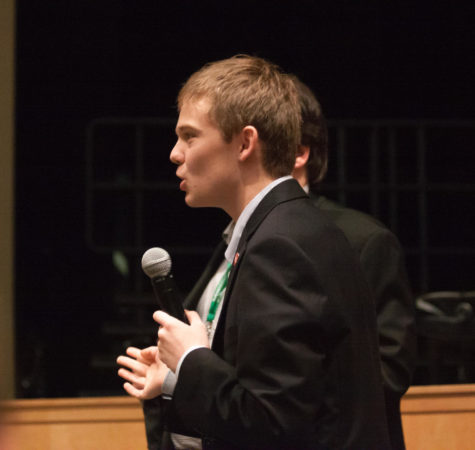LGBT+ students discuss what it means to be different
In promotion of LGBT+, students come together and support the community by holding hands in front of the rainbow flag. There have been many great strides for the community so far in 2015: the legalization of gay marriage, having both names of a same sex couple written on children’s birth certificates, support through social districts, pride parades, awareness days, books being published and much more.
Source: International Spectrum presented by University of Michigan
Most people wouldn’t picture “The Goonies” when they consider sexuality and identity. However, for senior Ellie Houston, sweaty palms, the scent of popcorn, and that classic adventure movie is what she thinks of as she reminisces on one of her first realizations about who she is.
“The first time I ever thought about [my sexuality] was like seventh grade,” Houston said. “[My best friend and I] were having a sleepover at my house and we were watching the Goonies. We were sitting on my bed, and about two-thirds through the movie I just reached out and held her hand. We just held hands for the rest of the night. Nothing happened, we just fell asleep.”
In 2015, most teenagers have heard coming out stories. The current generation is the first to grow up not only recognizing the acronym, but also to see widespread LGBT+ representation in the media. Things like the television series Modern Family, outlets such as Tumblr and Twitter and new federal rights have brought attention to the meaning of the LGBT+ acronym.
Additionally, the categories, once limited, are now a spectrum that includes gender fluidity, asexuality and much more. Some people, including Houston, who most closely identifies as panromantic and graysexual, still do not believe the labels are enough to encapsulate their feelings.
“I think having labels is really helpful to some people,” she said. “For me, I feel less comfortable labeling my sexuality because day-to-day I don’t feel like I fit the same identity.”
Nevertheless, this spectrum, and the identities expanding with it, help many find their place in the world.
“The fact that I identify with a label makes it feel normal,” junior Morgan McReynolds said.
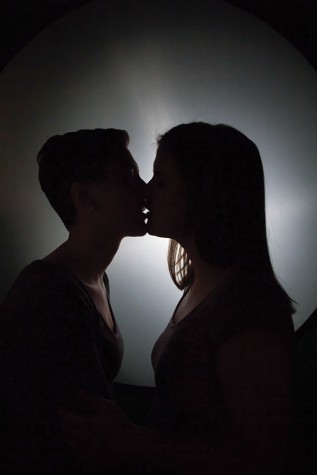
Junior Aubin Murphy (right) is a supporter of the LGBT+ community. Murphy says that LGBT+ individuals like herself celebrate their choices to openly live as who they are and celebrate all the the advances in the community. “I’m incredibly lucky to be surrounded by people who have never made a big deal out of my sexuality,” Murphy said.
McReynolds hadn’t thought about labels until last summer when she started seeing girls in pop culture and movies differently.
“It’s not that I don’t like looking at cute boys, I just like looking at cute girls also,” McReynolds said.
Over the past couple of years, steps have been taken in the LGBT+ community. Some of these include the Obama administration’s call for global LGBT+ human rights and the legalization of marriage for all couples.
Changes in our federal system have caused more awareness in our local environment. Because of this, the LGBT+ community at Free State is gaining more attention. For some students, advocating for equal rights has now become a part of daily life.
“Everyone [should be] allowed to feel how they feel, and everyone should feel validated,” McReynolds said.
This accepting spirit has led many students to become more comfortable coming out to their friends and families.
“When I told my friends [that I am bisexual], I was kind of nervous about it, but everybody was like ‘alright, cool,’” McReynolds said. “I was taken aback actually.”
Part of this accepting environment may be due to the opportunities the school has tried to provide. One of these resources, the Gay Straight Alliance (GSA) club, has attracted students of multiple sexualities. Not only does GSA strive to create a space for LGBT+ students to learn about their identities together, it encourages allies. Allies are students who may not fall in the LGBT+ spectrum, but still wish to provide support for their fellow classmates who are.
Like many others, freshman Chloe Board used GSA to find herself.
“First, I referred to myself as bisexual,” freshman Chloe Board said. “[Then] in GSA club we were talking about the spectrum, and the definition [of pansexuality], and I was like, ‘Well, I fit in there.’”
While the GSA has been a useful resource for many students, others feel there may not be enough opportunities to learn about LGBT+ issues outside of the club or for kids who may be confused at a younger age. Growing up, Houston experienced confusion due to her lack of information about identities outside the terms gay and lesbian.
“There should definitely be more outreach, especially in public schools,” Houston said. “There should just be more education. I never learned about this in sex ed. I learned about this on the internet.”
Because Houston identifies outside the more commonly known sexualities, she has sometimes felt unaccepted in the LGBT+ community.
“[How the LGBT+ community treats itself] is really one of the only problems I face every day,” Houston said. “People [assume] you have to fit, you have to look a certain way to be trans, you have to look a certain way to be gay, you have to look a certain way to be a lesbian, you have to be butch, or trendy, or not wear makeup, or not shave your armpits, or wear a lot of makeup. I don’t feel like I fit into those categories. I know there are other people out there who feel the same way.”
McReynolds agrees.
“It’s so strange because the LGBTQ+ community wants to be accepted so much, but some people aren’t even going to accept somebody within the community,” McReynolds said.
No matter what category or label LGBT+ students feel they fit under, confusion about their identity and sexuality is something faced nearly every day.
“[Realizing I’m gay] was kind of confusing at first,” junior Will Lenz said. “It’s a roller coaster, but I am accepting, and I was accepting of it then. I’m not ashamed of it.”
Over the years, Lenz’s confusion about his sexuality has transformed into acceptance and advocacy.
“You just got to plow through it,” Lenz said. “I’m not going to say it will be okay, because maybe it won’t, but I hope it is.”
Some students have found it difficult to come out, but others, like Houston, feel being open about their sexuality has been easy all along.
“I don’t feel like I should have to come out because I don’t feel like people should assume I’m one way or the other,” Houston said. “I don’t need to tell people I’m NOT straight because I never told people I WAS straight.”
The ease some feel when coming out could largely be attributed to Lawrence’s accepting community. Emily Byers felt this support when she decided to come out as lesbian. Although she knew her parents were open-minded, their religious backgrounds caused some hesitation.
“[When] I finally talked to my parents, my mom and dad said they knew I was gay since I was five years old,” Byers said. “They were just waiting for me to say something about it.”
Byers parents received the news well; however, she did face some opposition from friends considering her Christian beliefs. Although she has faced prejudice in some situations involving the church, she’s found her own way of coping.
“[Coming out] strengthened my faith,” she said. “For years, when I was questioning if it was okay, it really shook me. When you’re Christian, gay is the one thing you don’t want to be. But it’s taught me that there’s more to God than religion.”
When you’re Christian, gay is the one thing you don’t want to be. But it’s taught me that there’s more to God than religion.
— senior Emily Byers
The legalization of gay marriage have caused people from differing religious beliefs to voice their opinions. Junior Kahler Wiebe is one of those people.
“I think marriage should be between a man and a woman,” Wiebe said. “Marriage goes back to the church… and in the Bible it doesn’t say marriage is between the same sex.”
Contrasting the more traditional interpretation of the Bible, senior Mikey Corbett has embraced equal rights.
“I was raised in a Catholic family, but I have no qualms with gay marriage,” Corbett said. “I don’t think, just because you’re on one side of the spectrum, you should be blindly opposed to something.”
Corbett believes extending marriage equality into the federal laws was a positive change.
“I think so much of what we have in law is dated, and whenever we can become more progressive, that’s a good thing,” he said. “[Marriage equality] is a step in the right direction.”
Although Wiebe doesn’t agree with same-sex marriage, she doesn’t advocate the hatred directed at many LGBT+ people. She feels religious groups that spread their message through negative means are presenting their views in the wrong way.
“It annoys me a lot when Christians are so hateful and rude,” Wiebe said. “That’s not showing the love of Christ. You’re doing the opposite of what our religion tells us to do.”
It annoys me a lot when Christians are so hateful and rude. That’s not showing the love of Christ. You’re doing the opposite of what our religion tells us to do.
— junior Kahler Wiebe
Hatred has become commonplace for some students. During middle school, Houston struggled to take care of herself as a result of the ostracization she felt. Looking back now, she wishes she would have spoken up.
“Things just kept getting worse and it didn’t feel like they were ever going to get better,” Houston said. “And I didn’t even care. When people don’t even want to try to get better, that’s bad. I wish I would have told people I was feeling that way. But I didn’t, because I was ashamed. I didn’t know that other people felt that way.”
Problems with anxiety, identity and self-confidence are just a few of the many challenges LGBT+ students face.
“Having to explain it over and over again [has been the hardest part for me],” Lenz said. “Having to explain your feelings is hard for everybody … I’d try to explain it better to my closeted self.”
Many LGBT+ students are scared to speak up about their sexualities. Although coming out can be a difficult process, many find that being open about one’s identity is more rewarding than staying silent.
Byers noted that saying her sexuality to people out loud without shaking is still difficult, but coming out has made her life easier. Houston added that it’s not just about speaking up.
“I want to tell myself that I have value and I have importance and to put myself first,” Houston said. “Take care of yourself. Take a shower, wash your hair, breathe, get out of the house. If you think your identity matters, if you think you matter, you’ll take better care of yourself and it’s like a cycle.”


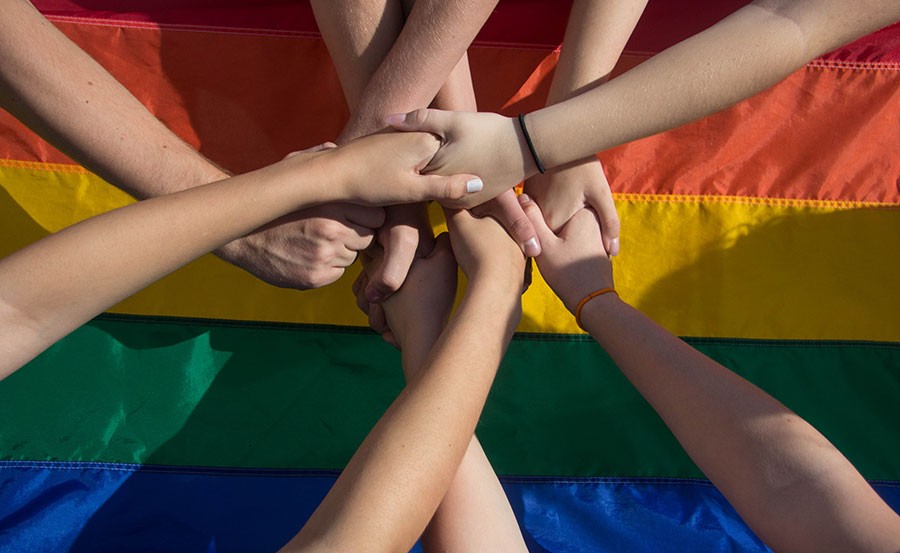
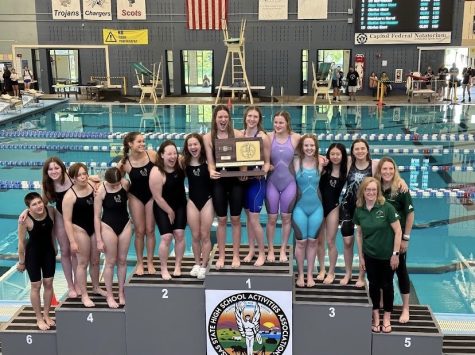
![After receiving advice from her students, orchestra director Judy Erpelding marks her music. Although the director normally makes the artistic decisions, Erpelding will often consult her students and hear their opinions on what sounds good and what they should try out. “[The students] are the heart of the program, not me,” Erpelding said. “I know they will carry that on and I will miss them. Making great music with them, being able to challenge them, taking their inspiration.”](https://www.fsfreepressonline.com/wp-content/uploads/2023/05/Roust_Erpelding_5_11_23-317x475.jpg)
